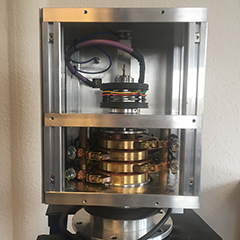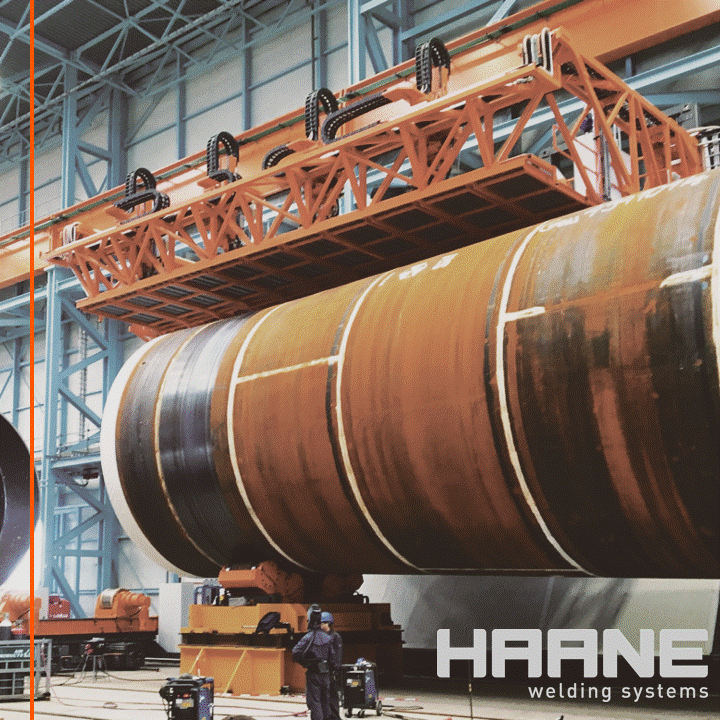When maintenance-free is not an option, but a must. When there is no alternative to ergonomics. When longevity and reliability are the justified customer demand. Then Moog Rekofa GmbH offers the perfect way to combine all these requirements in one product.
Founded in 1921, Rekofa has been building slip ring assemblies since 1960 and thus was the pioneer in the field of products also known as rotary unions. They are developed in Germany to this day. The group of companies within the Moog Group makes it possible to bundle all synergies from the sites Antweiler, Blacksburg, Halifax, Shanghai and Geisenheim and thus provide customers with the best solution for their application.
Decades of experience in the wind power industry mean that the Moog Group can offer each customer the best product. These include numerous OEMs, but also wind farm operators, service companies and distributors.
Opportunities at Moog
One of the many advantages of Moog is its versatility. With 13,000 employees at over 50 locations in 30 countries, the Group acts in the interests of its customers. In the case of slip ring assemblies, we therefore are in a position to develop and produce large batches. However, customer requests can also be implemented in small batches in order to grow together as partners.
Slip Ring Assemblies in Hub, Nacelle and Tower
Moog Rekofa slip ring assemblies make it possible to establish the endless rotating contact between the nacelle and the hub. Motor and signal currents, as well as media such as hydraulic oil or grease for central lubrication, are routed through the rotary unions. Thus, the wind turbine can rotate the rotor blades to the perfect position and monitor (pitch control).
Quality
In order to meet the constantly increasing demands, substantial investments were made at the Antweiler site. Over the past 15 years, climatic cabinets have been acquired, endurance tests have been installed and partnerships have been concluded with external laboratories, e.g. for vibration and protection class tests. The resulting solutions are constantly incorporated into the products. Today, IP65 protection is standard.
However, findings from other areas of application of slip ring assemblies are also being reviewed for use in wind turbines. For example, the company’s products are also used in fire department ladders, cranes or car welding robots. This allowed a lot of knowledge about vibrations and EMC protection to be gathered and implemented.
Technical Possibilities at Moog
Classically, motor, signal and data streams are transmitted via contact tracks. For this purpose, a stationary current collector delivers the current to the endlessly rotating collector strips. Moog uses carbon brushes to transmit the motor currents of up to 500A. Rekofa developed the principle of the carbon brush as we know it today as early as 1921 and continued to further develop it. Similar components are also used for lightning protection. Fiber brushes are used for currents up to 100A, as well as signals and data such as Ethernet. Here, entire fiber brushes lie on each slip ring and ensure reliable transmission in every situation.
However, non-contact capacitive and fiber optic rotary distributors (FORJ) are also installed for data transmission – depending on the customer’s specifications and requirements. These products transmit >2Gbit/s without wear. If desired, directly with the appropriate converter (multiplexer), e.g. to convert optical data into electrical signals.
In order to be able to supply everything from a single source, the Moog engineers have still made space in the very compact slip ring housing. The slip ring assemblies can be equipped with any encoders for monitoring the hub position.
A fluid rotary union (FRU) for transferring hydraulic oil and grease can replace the electrical power tracks for provide rotor blade pitch control. Alternatively, it can be combined with the electronic Moog components for data transmission. Moog also uses products from the Geisenheim plant for this purpose. Here, among others things, fluid rotary unions for up to 40,000 revolutions per minute and 700 bars of pressure are manufactured.
Condition Monitoring to Avoid Downtime
To permanently monitor the slip ring assembly itself or some of the components within the hub, Moog’s Halifax facility has developed a new generation of circuit boards. They pass on the data in real time. In particular, these include temperature, vibration, humidity, total revolutions and even brightness for short circuit control. Changes are immediately visible in the network and the operator can proactively plan any maintenance. Downtime is significantly reduced or avoided. This component is also installed inside the ergonomic slip ring assembly.
Moog Lives Reliability and Service
In addition to reliability, the primary goal is to make the slip ring assemblies as compact as possible. Through direct technical customer contact, as well as permanent project management, Moog can implement customer wishes and requirements perfectly. The result is a durable and high-quality hybrid rotary distributor that meets all specifications. At the same time, the Moog slip ring assembly significantly reduces maintenance cost and downtime.
The Moog engineers are highly motivated and look forward to implementing even initially seemingly impossible requests to the complete satisfaction of the customer. Because “Make the impossible possible” is the mission of Moog’s employees.






























